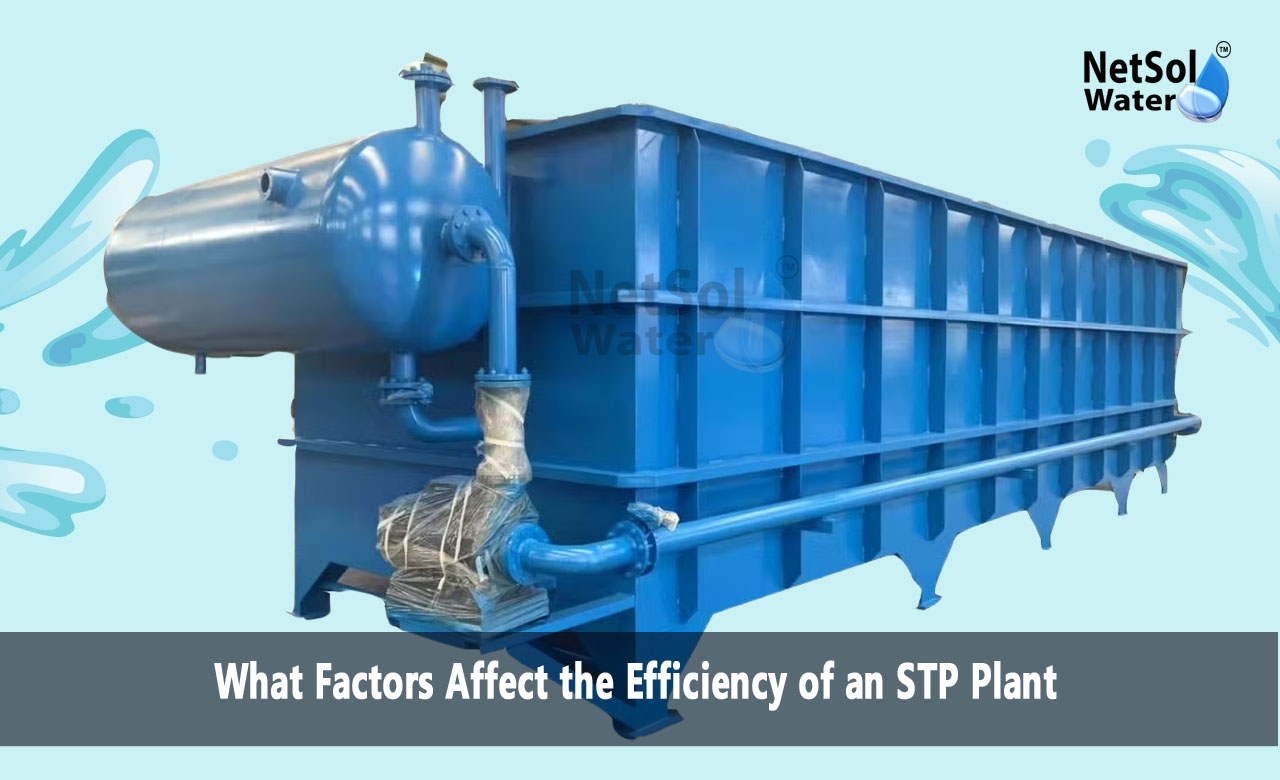What Factors Affect the Efficiency of an STP Plant?
A Sewage Treatment Plant is a major plant where wastewater is treated and the environment is safeguarded. Nevertheless, the efficiency of an STP can vary greatly due to some major factors. Knowing the factors that affect the efficiency of an STP ensures the process operating effectively in the plant and producing quality-treated water.
We will discuss the major parameters that govern the performance of an STP and how to optimize its operation.
What Is the Efficiency of an STP?
The efficiency of an STP is the capacity of an STP to eliminate contaminants, solids, and pathogenic microorganisms from sewage. A properly operating STP gives clean and sanitary water, which can be utilized again or released to the environment in a safe manner.
A few conditions and parameters can influence this efficiency, and therefore periodical checking and servicing of the plant must be done.
Key Factors Control the Efficiency of an STP
Quality and Quantity of Influent
A significant factor that affect the efficiency of an STP is the amount and quality of inflowing sewage (influent). Excess industrial waste, chemicals, or poisonous material in the sewage may affect biological functioning in the plant. Likewise, dramatic changes in sewage flow may over-burden the system or result in a lack of adequate treatment.
STP Design and Capacity
The plant size and how well it is able to treat a given volume of sewage also play a substantial role in helping to establish its efficiency. If the STP is not properly sized or not designed suitably in accordance with the characteristics of the wastewater, it will not be in a position to treat the water sufficiently. Selecting technology and proper plant sizing is necessary to ensure maximum performance.
Type of Treatment Technology Implemented
A variety of treatment technologies—activated sludge, trickling filter, or membrane bioreactor—differ from each other in terms of performance as well as applicability for different wastewater types. The plant's efficiency can be lowered by suboptimal or old technology.
Operational and Maintenance Procedures
It is essential to check, maintain and run things as planned. When filters are not cleaned, parts aren’t replaced and chemicals are not added in the recommended amount, the system can develop problems.
Temperature and Climatic Conditions
All biological activities in an STP are controlled by temperature. Low or very high temperatures can stop the bacteria that are responsible for breaking down organic matter. It is also affected by changes in climate and the season.
pH Levels and Chemical Balance
Bacteria and other microbes respond to changes in wastewater pH. The bacteria used to clean sewage favor a pH between slightly alkaline and neutral. If the pH is too high, it can limit the effectiveness of biological treatment in the plant.
Toxic Substances
Many chemicals, heavy metals and disinfectants found in sewage are toxic for the organisms deployed for wastewater treatment. If the water is too toxic, it can affect the biological population and make treatment choices less effective.
Sludge Management
Sludge should be handled and disposed of properly. Accumulated sludge will impact the treatment process if not cleared on a regular basis, leading to clogging and ineffective performance.
How to Increase Efficiency of STP?
Knowledge of factors that affect the efficiency of an STP enables the plant operators to take certain steps:
Regularly monitor the influent and treated water to check the quality.
Regular monitoring for maintenance and inspection purposes.
Use appropriate technology according to wastewater character and quantity.
Operate under best operating conditions like temperature and pH.
Train staff for efficient operation of the plant.
Dispose sludge in safe and proper way.
Importance of Monitoring and Automation
Advancements in automation and on-line monitoring are significantly contributing to recent STPs. Monitoring of different parameters like temperature, pH, dissolved oxygen, and flow rate is made possible by sensors and control systems. Monitoring allows for early identification of faults and improvement in performance by the elimination of a few common factors lowering the efficiency of an STP.
Conclusion
The performance of an STP relies on numerous interdependent variables. The factors that affect the efficiency of an STP include influent quality, plant design, treatment technology, operational practices, and environmental conditions. The variables should be controlled and known for proper plant operation in the protection of public health as well as the environment.
Regular maintenance, proper observation, and professional operation can ensure treatment standards at all times and enhance the lifespan of the plant. With all these important parameters in mind, you can be certain that your STP provides clean and safe water and fulfills all the statutory norms.
Do you need an advice or assistance on selecting the best water and waste water treatment unit? We have solutions for all your problems!
Let us know your problem, our experts will make sure that it goes away.
For an assistance or related query,
Call on +91-9650608473 Or write us at enquiry@netsolwater.com



